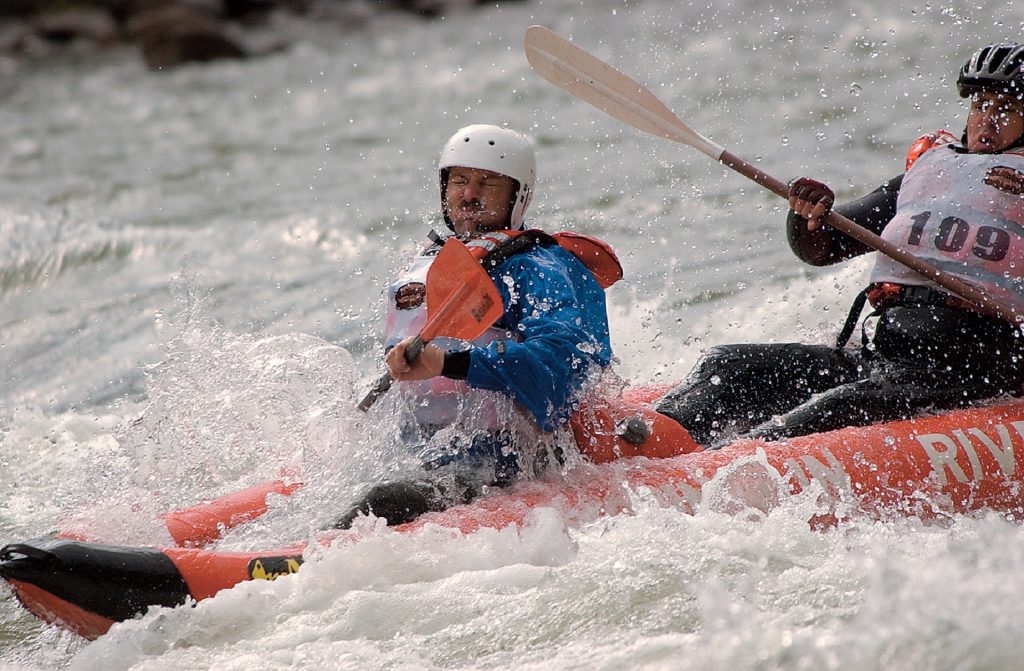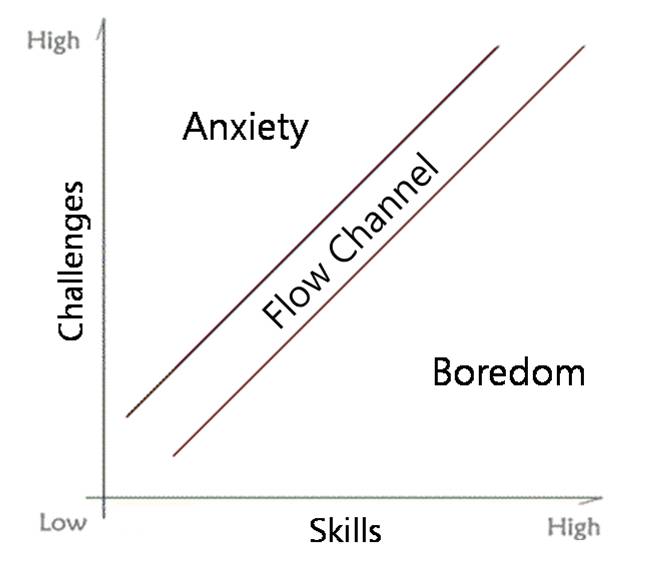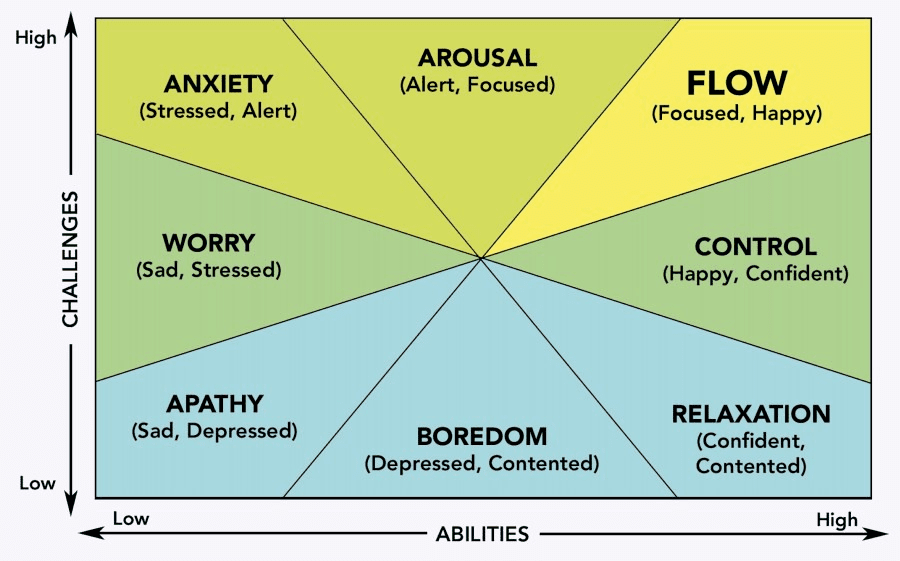Is this man thinking about paying the bills? Or an argument with his loved one last night? Or whether this picture will look good on Instagram?
Unlikely, as when you’re in the zone, otherwise known as the state of Flow, you are so absorbed by the activity itself, responding to the feedback you are receiving from your performance in the moment, that you have no mental ‘bandwidth’ to think about anything other than the job in hand. Worry and anxiety are suspended as attention is focussed on something aligned with your goals and is sufficiently challenging resulting in ‘optimal experience’.
‘So what is the state of Flow?
Much of the research information about the state of Flow has been lead by Mihaly Csikszentmihalyi, a psychologist, noted for his work on happiness and creativity and for his research and naming of this highly focused mental state – this article is largely based on this research. Here is a link to his book ‘Flow – the psychology of optimal experience’.
In short, Flow arises when there is a balance between the level of challenge of the activity and the skills needed to perform that activity. Indeed, the challenge of an activity must be sufficiently high to require effort and focussed attention but not so high that it causes anxiety due to a perceived shortfall in skill level required to meet the challenge.
As this diagram shows, as skill levels increase, the level of challenge needs to increase to avoid boredom in carrying out the challenge. Similarly, as the level of challenge increases the skills must be developed to avoid anxiety from engaging with the challenge.
Therefore, to maintain a state of Flow for an activity it is necessary to keep increasing the challenge and skill as appropriate. Such actions will result in peak performance as well as continual skill growth.
How can Flow be achieved?
In Mihaly’s book Flow the key common ingredients reported to be present when someone is in a state of flow are as follows:
- The task must:
- Have a chance of being completed
- Have a clear goal
- Provide immediate feedback
- Become autotelic (enjoying it as an activity in itself, rather than what you may achieve from doing it)
- You must be able to
- Concentrate
- Act with deep and effortless involvement that removes awareness of frustrations of everyday life
- Have a sense of control over your actions
- Your sense of self disappears and there is a sense of union with your environment
- Sense of time is distorted – it may appear to ‘fly by’ or ‘be in slow motion’
What are the benefits of getting into Flow?
- Personal growth and development
- Relief from stress as attention is focussed on activity instead of worrying thoughts linked stress and anxiety
- Good state for body to heal itself cf Steven Kotler, author, speaker and Flow junky who believes that his recovery from Lymes disease was facilitated by regularly getting into a state of flow
- Focussed attention on engaging skills to complete a challenge enables the skills to develop and improve
- Ability to achieve peak performance and overcome new increased challenges
- Increased automation of skills which can be relied on in times of stress when the capacity to solve and think is diminished
Tips for getting into Flow:
- Use this diagram of emotional states to understand where you are in terms of being in flow and then focus on the activity that will move you towards the ‘Flow’ state as detailed below
- Engage in new skills and low levels of challenge. With any new skill there is a period of time when the level of skill is too low to be able to get into flow – this can feel both ‘frustrating’ and ‘boring’ due to uncertainty about what to do and how to overcome the challenge. Until the initial ‘incompetent period’ has passed it may be necessary to be encouraged and motivated extrinsically in the short term until the level of skill is high enough for it to become enjoyable
- If challenge too high then continue to develop and master an existing skill
- If skill level too high for challenge, increase the level of challenge
Certain conditions can impede the ability to get into Flow where attention cannot be focussed due to chaos or because there is no freedom to do so. Examples include:
- Conditions such as schizophrenia or attention disorders
- Excessive self-consciousness
- Tasks with a lack of rules (no clear direction or ability to measure progress)
- Tasks with too many rules (as this inhibits autonomy)
So whether you want to perform at your peak, master a skill, create the best physical state for your body to heal itself or develop a more constructive response to stress, getting into the Flow state is definitely a strategy worth considering. Furthermore, this could be a tangible and accessible route to achieving HAPPINESS that isn’t linked to wealth or IQ – just an ability to focus attention on something you are passionate about. Go for it!


